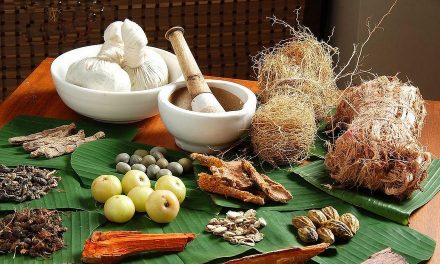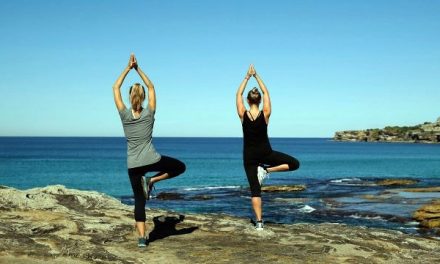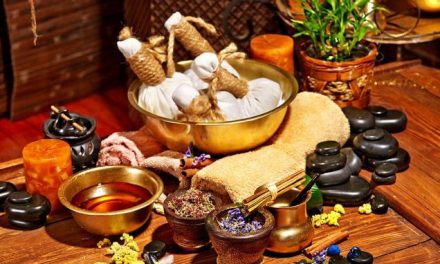Children are the most precious gift. It is the duty of parents and caregivers to cater to their needs in the best possible way. But there are several grave diseases that can endanger these young lives.
Autism is one such neurodevelopmental disorder that can affect an innocent child. It generally occurs during the formative years, between the ages of two and three. It encompasses a range of psychological disorders that portray a lack of interest, impairment in communication and social skills.
[wp_ad_camp_1]
Autism creates reluctance in participating in activities and there are certain repetitive actions, gestures and behavior. It basically hinders normal brain functioning due to abnormal bio-chemistry, which prevents a child from assimilating and organizing information accurately.
Under the umbrella condition called Autism Spectrum Disorder (ASD), there are five such disorders. This includes Autistic disorder, Asperger syndrome, Rett syndrome, Childhood disintegrative syndrome and Pervasive developmental disorder. The overwhelming fact is that six out of eight in every 1000 children display signs of autism.
These symptoms are said to be a result of the combination of genetic and environmental factors. Children from families with a history of nervous system elated diseases or chromosomal abnormalities are more susceptible. Other reasons include weak diet, digestive system transformations, vaccine sensitivity and inability to process vitamins and minerals. It can also happen due to mercury poisoning. This is why psychophysical care for both mother and child is important during the first 2-3 years.
According to Ayurveda, autism occurs due to the gross imbalance of Vata dosha. This is more prominent in it’s the sub category Prana Vata which is lodged in the mind. It governs over all cerebral activities such as memory, concentration, speech, learning and neurological responses. This deregulation and disequilibrium happens at the level of the brain – medha and mind.
Usually energy level disturbances are treated via rays and radiation. The deranged rhythm at the medha level can be controlled via sound and vibration. Biochemical imbalances are handled by dispensing drugs or Dravya level where as behavioral issues can be treated at a practice and exercise level with specialized education.
Ayurveda offers holistic internal medications and external treatments for children with ASD, which greatly aid the improvement in eye-to-eye contact, communication and interaction. Ayurveda also enhances other associated issues such as metabolism, immunity while lessening hyperactivity.
The exact specifics of Autism are vague under modern medicine but Ayurveda provides clear cut answers. According to Ayurveda are four states of imbalance due to the disharmony in the brain and life forces. Firstly, there are anatomical abnormalities of naisargika phenomenon.
This means naturally inherited traits via genes or even accidents. The second is physiological abnormalities because of the equations of and between the dosha, dhatus, malas and cosmic consequences known as graha dosha. The third includes behavioral and emotional abnormalities at the life force level breeding confusion and unclear understanding. The fourth is multiple abnormalities due to the above three states.
It is heartbreaking for parents to see their baby suffering from autism but identification is important before it manifests to dangerous levels. That is why knowing the symptoms are essential. Some of the prominent indicators include:
• Lack of eye contact and meaningful gestures by the age of one.
• No signs of speech or vocabulary development by the age of sixteen months
• Cannot combine words by the age of two.
• No response when addressed by name
• Does not smile or show affection
• Loses language and social skills
• Problems in mobility
• Sometimes faces vision loss and hearing impairment
Ayurveda treatment is most successful as it is routed towards the child’s specific needs. It will involve a permutation-combination or herbal medication, massages, occupational and physical theory with an established Ayurveda specialist.
The protocol for ASD is based on eliminating toxins from the system and simultaneous energizing and nourishment of the dhatus and cells so that they can get readily mended. The sacred line of ancient Vedic treatment includes thalapothichil, shirodhara, abhyanga, ksheeradhara and internal medicines. This can be coupled with speech and language therapy with a notable speech therapist.
Warmed vata oil must be applied to the spine and in the forehead (third eye region) and on the hands up to the elbow. The crown of the head must be gently massaged with vata hair old. A combination of 50% vata oil and 50% cold-pressed sesame is fine. Additionally almond oil must be applied to the head and feet daily. Clay bathing is also recommended as are certain soma producing mantras or chants.
There is also a supporting dietary regimen to be followed. Ayurveda considers food or ahara to be a major source that affects life force or prana Shakti. A strict Vata diet must be adhered to by the child. Only pure cow ghee and olive oil must be used for food preparation. This ghee infuses in the brain and nerve tissues and extracts lipid soluble chemicals.
This detoxifying effect nourishes the brain cells and tissues, thereby repairing the damage caused by the condition. Home-made lassi (a blend of 1/4th cup of yogurt with 3/4th cup of water) with a dash of cardamom, cinnamon and black pepper may be added. A pinch of jaggery or raw sugar can be added for sweetness. Coriander juice should also be squeezed into food for seasoning.
5-6 drops are sufficient. One can also give the child diluted fresh juice of pomegranate. Sweet juices must be processed by a masticating juicer and consumed a couple of times every day. Some of the combination juices for autism are mango and pawpaw, apple and grape, grape and carrot, apple and carrot, pineapple and pawpaw and apple and litchi.
The autistic child must avoid all chemically processed foods like colas, chips, chocolates, as well as night shades and legumes other than green and white mung dal. All soya products must be avoided too. A lot of children respond to a gluten-free (wheat, barley, rye etc.) and casein-free diet (dairy products like milk, cheese and other derivatives).
This is how Ayurveda offers alternative solutions to curb autism.












